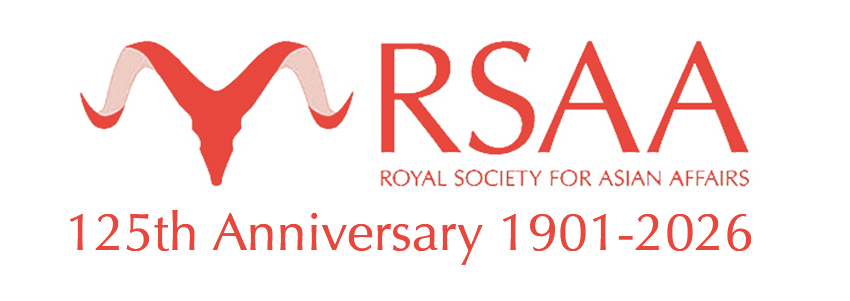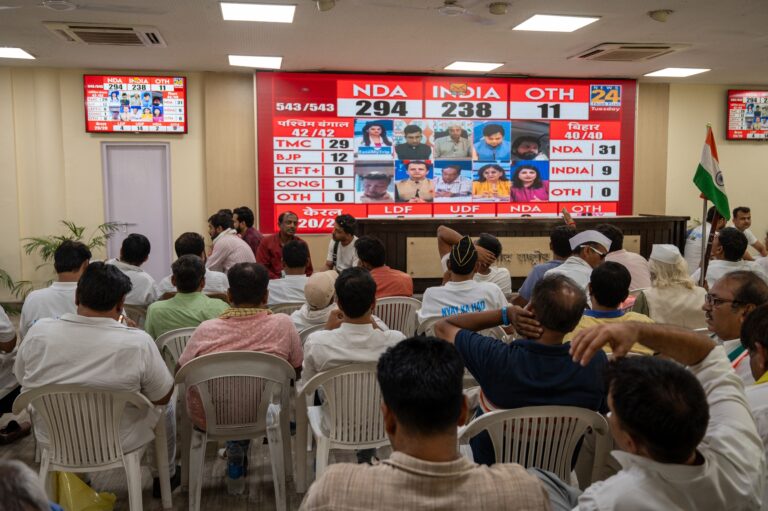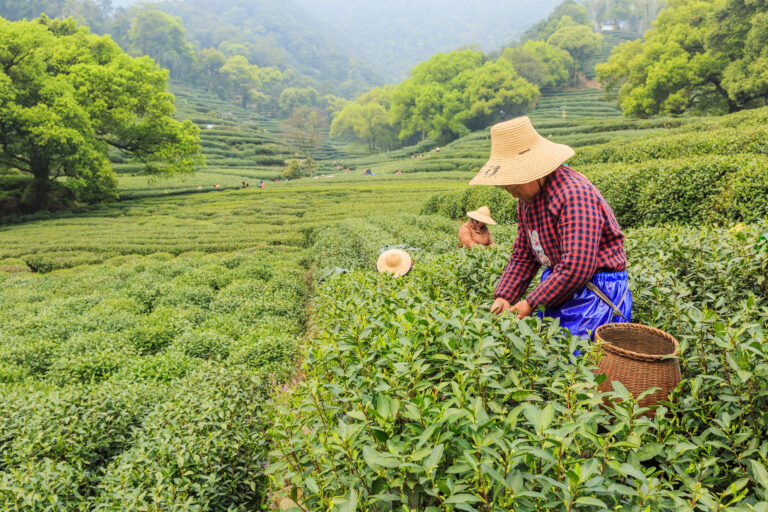Red Sands: Reportage and Recipes from Central Asia
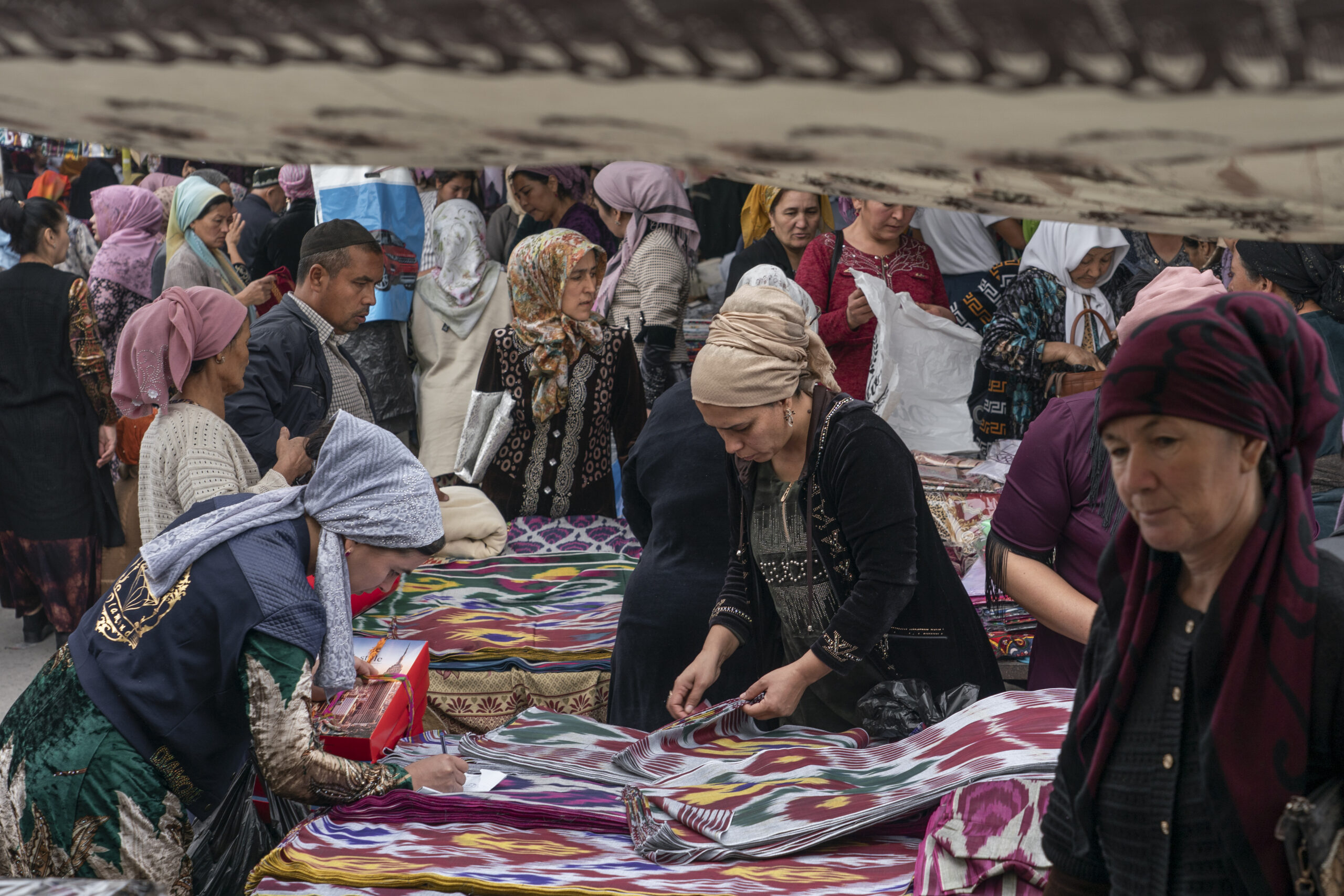
Caroline Eden is a writer and literary critic and author of the weekly newsletter Journey beyond borders
Earlier this year, Green Mountains: Walking the Caucasus with Recipes, was published concluding my ‘colour trilogy’ set of books covering the food, history and culture of the Black Sea region, the South Caucasus and Central Asia. Encompassing ten years of research, and over 10,000 miles travelled on at least ten forms of transport, the three books have taken me to the southern reaches of Uzbekistan in summer, the high peaks of the Caucasus in deep winter and to the Caspian Sea in springtime when Kazakhstan’s steppelands burst into bloom with tulips. It has been an immersive, and highly enjoyable, project.
The idea behind these books was to use food as a tool and agent to give readers a very personal insight into these under-reported regions. Humanity and hope – and the importance of a good shared meal on the road – may be the messages that emerge but it is often the unsparing natural geography that pushes the pace, along with the devastation of Russia’s full-scale invasion of Ukraine which permeates all corners of the former Soviet Union, and which often formed a grim backdrop to my research and travels. The first book in the trio, Black Sea: Dispatches and Recipes Through Darkness and Light (2018 and with an updated edition in 2024) begins in Odesa, Ukraine’s great southern port city, and the final book in the trilogy, Green Mountains, concludes back on the Black Sea, but in Georgia.
It has been an honour to write this trilogy and to share them with audiences in different countries including India, the USA and up and down the UK, where I live. But mostly it has been a privilege to meet so many interesting people who have contributed their stories and experiences. I interviewed, and shared meals with, imams, priests, fruit pickers, tea harvesters, curators and chess masters. Botanists in Tajikistan, polyphonic singers in Georgia and Old Believers in Armenia. All the while looking back to the maverick artists, writers, poets and heroic alpinists of the past. Along the way, the epic landscapes and fascinating cities came further alive via these encounters.
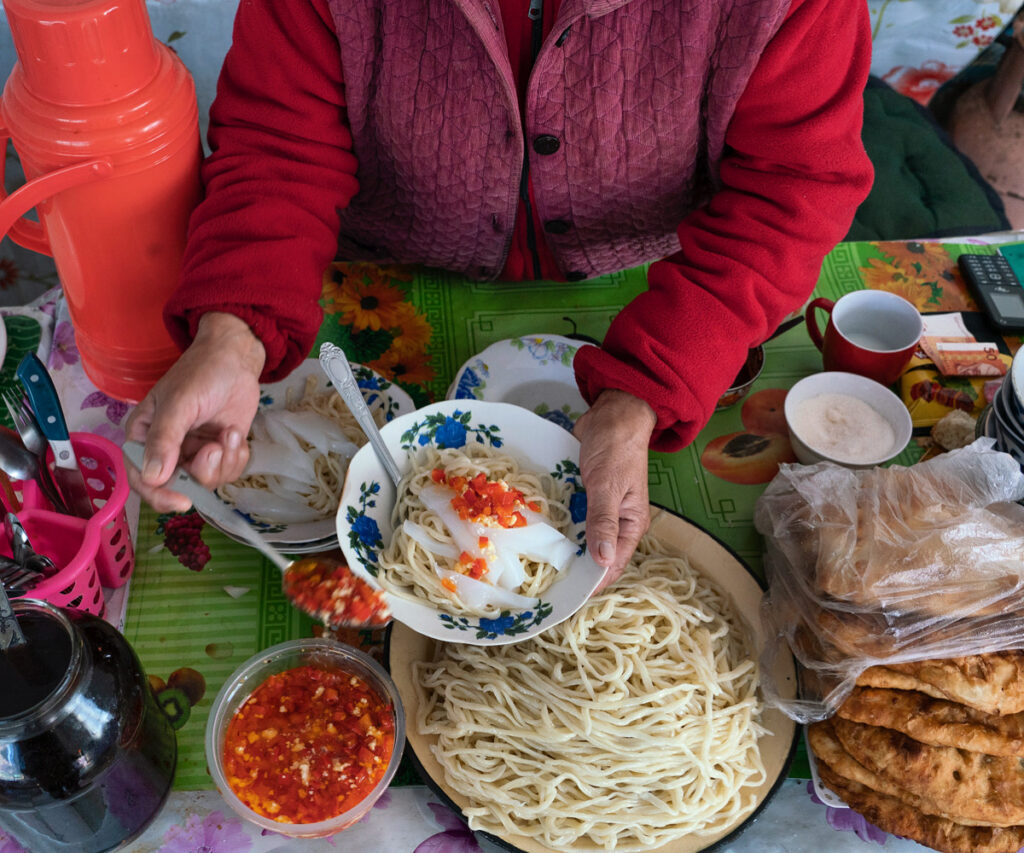
Green Mountains, which charts a series of invigorating walks from the stormy sunbaked valleys of southern Armenia to the jagged peaks of northern Georgia, may be the newest book of the three but for the RSAA it is Red Sands: Reportage and Recipes from Central Asia (2020), the middle book, that I’d like to focus on.
While exploring mosques set in desert caves, wedding halls that glitter (and suffocate), disorientating walnut forests, hotels for the heroes of the Soviet space programme and the dining rooms of Soviet-era sanatoriums I take readers to meet the stars of this book: the cooks, poets, entrepreneurs, historians, gardeners and fishermen of Kazakhstan, Kyrgyzstan, Tajikistan and Uzbekistan.
A reimagining of traditional travel writing, the book uses food as the jumping-off point to explore Central Asia and includes recipes for plov, samsa, cocktails and many other dishes and drinks that you may be familiar with if you have visited.
And the name? At the heart of Central Asia, lying sunburnt and untamed, is the ‘red sands’ desert known as the Kyzylkum.
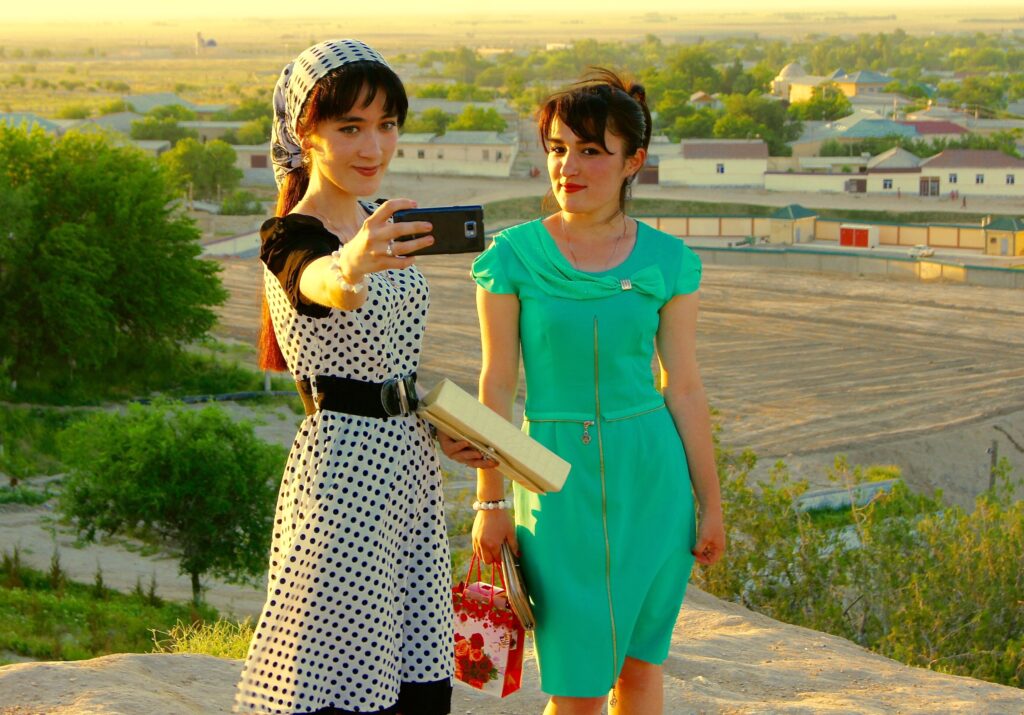
Red Sands is my personal favourite of the trilogy and to give a sense of it, I’d like to share with you a short extract from the book:
I returned home to Edinburgh as autumn made way for winter. During short dark days, I began reconstructing the journey I’d taken, the people I’d met and the stories I’d heard.
What I found, during the spring and autumn of 2019, while charting a rough course from the shores of the Caspian Sea to the sun-ripened knot of the Fergana Valley, was slippery and disarming; life-arming and heartening. I’d set out to better understand this vast heartland of Asia, using food as a jumping-off point. I wanted to see the region with new eyes and to gauge how food forges and shapes the landscape and reflects history. To test how it can open doors to other lives and worlds. And I wanted to record the changes I’d witnessed too, over a decade of travelling to and from Central Asia.
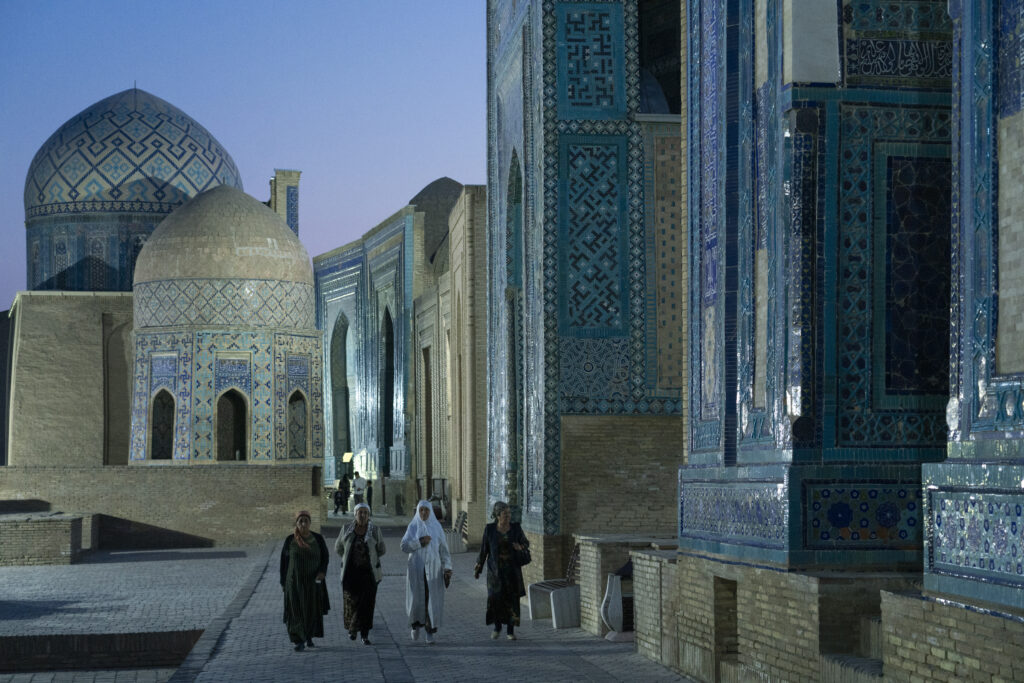
Edible pleasures of great generosity followed. From Pavlodar’s prom-queen cake shop, Krendel, brimming with almost every sugary fancy under the sun, to tasting honey deep in the Kyzylkum desert. I had heard about mosque kitchens way out west in the desert steppe in Kazakhstan, out past the oil fields, but I could never have imagined the outlandish remoteness of them, nor predicted how pivotal the role of food is to pilgrims who make long journeys to get there.
At the generous iftar feast during Ramadan at the Uyghur Mosque in Almaty, I listened to firsthand accounts of families separated by the crackdown on Muslims across the border in China. Tiny springtime strawberries, flavourful pomegranates and curious winter melons were seasonal companions.
But disorientation, and some disappointment, bedevilled the journeys. In remote windblown Aralsk, close to the Aral Sea in Kazakhstan, there was a sense of dissolving into a scorched landscape. The desiccation of the Aral Sea, a result of the Soviets diverting the Syr Darya and Amu Darya rivers to irrigate cotton fields, may have happened decades ago but the ecological fallout health problems and environmental destruction continues, even if there are signs of hope on the north shore.
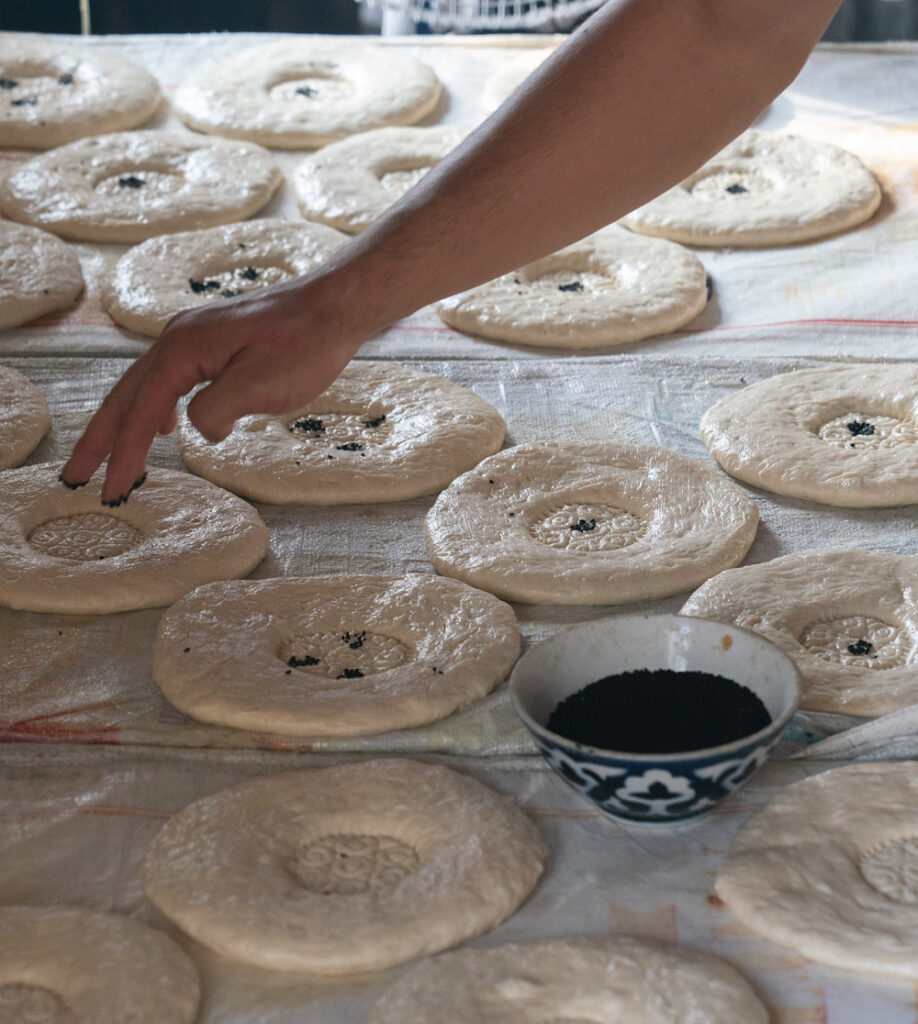
Elsewhere, farmers and harvesters, who, like their forefathers intimately know and work the land, spoke matter-of-factly about climate change in remote orchards in Tajikistan and the walnut forests of Kyrgyzstan, their terrain a frontline and a litmus test for the climate emergency.
Astana’s bewildering architecture seemed both old-school Soviet in its scope and heft but also cutting-edge and futuristic, an effort, reected across the region, to build a new identity. Elsewhere, in Dushanbe, and many of Uzbekistan’s cities and towns, old traditional mahallas had been torn down, threatening traditional ways of life and family histories…
*title image – Margilan Kumtepa Bazaar, Uzbekistan taken by Theodore Kaye
The opinions expressed are those of the contributor, not necessarily of the RSAA.
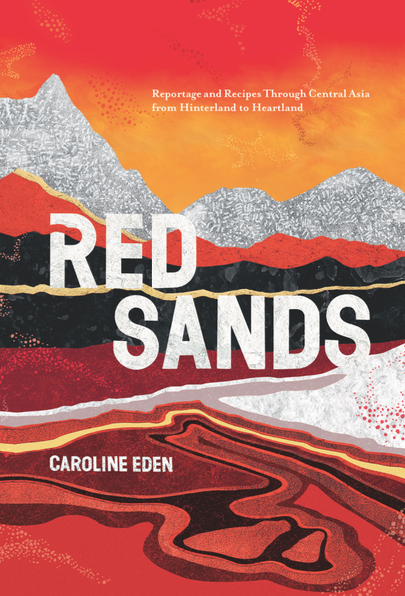
Red Sands: Reportage and Recipes Through Central Asia from Hinterland to Heartland
Red Sands, the follow-up to Caroline Eden’s multi-award-winning Black Sea, is a reimagining of traditional travel writing using food as the jumping-off point to explore Central Asia. In a quest to better understand this vast heartland of Asia, Caroline navigates a course from the shores of the Caspian Sea to the sun-ripened orchards of the Fergana Valley. A book filled with human stories, forgotten histories and tales of adventure, Caroline is a reliable guide using food as her passport to enter lives, cities and landscapes rarely written about. Lit up by emblematic recipes, Red Sands is an utterly unique book, bringing in universal themes that relate to us all: hope, hunger, longing, love and the joys of eating well on the road.
To receive a 20% discount on signed copies of Caroline Eden’s award-winning Red Sands, please email redsandscookbook@gmail.com and mention this blog.
